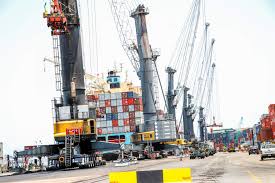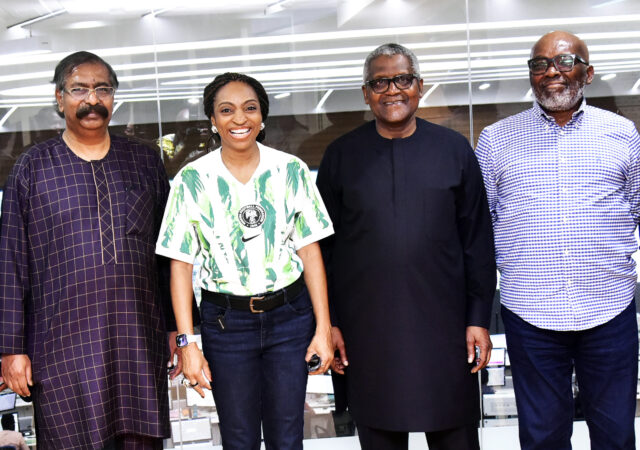- Call for State of Emergency on Air Quality
- Seeks Public/Private sector collaboration to combat air pollution
Stakeholders attending a virtual meeting to commemorate the International Day of Clean Air and Blue Skies have lamented the unrelenting air pollution in Nigeria and how it is causing severe health challenges.
Hosted by a group of organizations including the Centre for 21st Century Issues, Renaclip foundation, United States Embassy in Nigeria and the University of Lagos Centre for Housing and Sustainable Development, the meeting called for collaborative awareness and action on promoting clean air in Nigeria.
Nigeria has been adjudged as having one of the worst cases of air pollution globally. Causes of Nigeria’s air pollution range from gas flaring and explosions from pipeline bursts, either due to vandalism or undue pressure, transportation emissions, indiscriminate burning of waste and other avoidable practices.
In 2016, Onitsha, a city in Nigeria held the dubious honour of being the most polluted city in the world, with Port-Harcourt and Lagos, Nigerian cities, not lagging far behind.
Six years down the road, other states in Nigeria have taken that distinction.
In 2022, the situation has slightly changed with cities in the North of Nigeria, Kano, Bornu and Kwara analysed as the most hazardous cities in the country. (https://www.aqi.in/dashboard/nigeria)
This have created ever recurring incidences of illnesses traceable to air pollution.
However, according to various speakers at the virtual meeting, there are solutions to all these if they can be implemented.
Prof. Taibat Lawanson, the Co-Director of the Centre for Housing and Sustainable Development, opening the meeting remarked that over 30,000 deaths are recorded annually in Lagos due to health issues caused by air pollution; with significant economic losses of about $2.2billion annually.

According to Prof. Jimmy Adegoke, there should be more focus on reducing clean air pollution as well as enabling public awareness about the negative effects of air pollution.
Prof. Adegoke, a senior adviser on climate change and green growth at the African Development Bank (AFDB) Group, stated that fuel subsidy removal appears to have had a positive effect on air pollution as it has reduced the number of vehicles on the road, however, more sustainable solutions need to be found and implemented.
“We are in a catch 22 situation”.
“There is no gainsaying that fossil fuels are the primary causes of air pollution in Nigeria. So we must stop or reduce fossil fuels. However, we much continue to extract value from fossil fuels due to the value that can be derived from them as base materials”.
“So, we must find a solution which is to be smarter and more intention about transitioning away from using fossil fuels as transportation and energy fuels’.
‘This means, we much focus on clean alternative energies’, concluded Prof. Adegoke.
Prof. Adegoke, who is an award-winning climate scientist, insisted that waste management and industrial pollution need to be addressed as emergency issues. The ways, manner, disposal and treatment of all forms of waste need to be properly looked into to avoid air pollution.
Adegoke advocated for a fossil fuel tax to be levied on industrial concerns, based on various levels of industrial activity.
While states such as Lagos state might have that option, it will be recalled that in July 2023, President Bola Tinubu suspended the Green Tax Policy that was announced at the tail end of the previous administration of Muhammadu Buhari.
Apart from the component dealing with single use plastics, the green tax specifically targeted of vehicles of 2000cc and above; levying a tax on such imported vehicles to curb carbon emissions.
In his address, Tribe Elyon, founder of Renaclip Foundation, focused on environmental and climate protection, listed some solutions that could impact on reducing air pollution. They include:
* Urban Transportation: Using electric buses and ride sharing for cleaner transportation. A case in point are the newly launched mass transit electric vehicles by the Lagos State government and also the Blue Rail light track trains, which are expected within the next few months to be wholly run on electricity.
* Industrial Emissions Control: To ensure utilization of emissions reduction technologies in industries and production plants
* Clean cooking solutions: To promote clean cooking stoves using biomass and natural gas to reduce indoor air pollution
* Waste Management: Reduce waste burning and promote circular economy measures, not just in homes and individual levels but at industrial scale.
Waziri Abubakar, an Urbanbetter/Cityzens4CleanAir Run Leader who ran in the February 2023 Lagos Marathon with an air monitor, advocated for the use of evidence-informed advocacy to raise awareness about air quality.
Other Solutions recommended by ‘UrbanBetter’ revolve around creating awareness about air pollution, developing data to shape a new narrative and building a movement of advocates using several means including stories, sports and community interactions.
According to the participants, everybody is at risk of air pollution. It is therefore imperative that all should look at how air pollution is affecting us as a country and in the cities; seek to strengthen awareness of how communities can benefit from clean air and catalyze platforms for partnership.
The meeting ended with a call for a state of emergency on combating air pollution.







